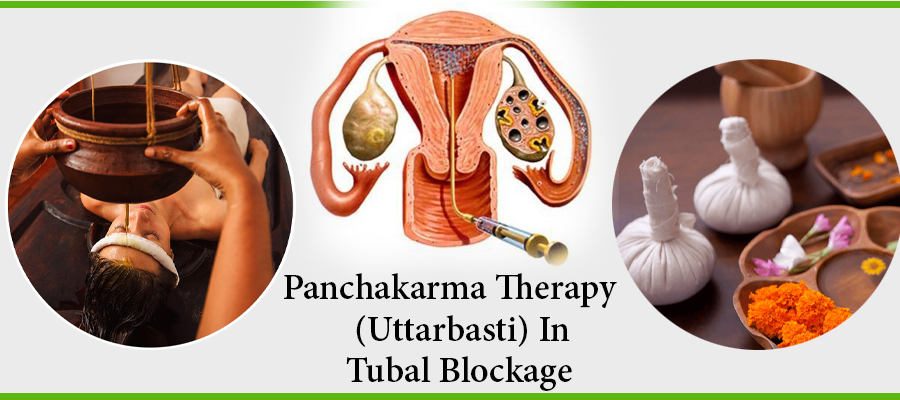Overview
One specific Ayurvedic treatment known for its effectiveness in treating disorders of the reproductive and urinary systems is Uttar Basti. Although it is a variation of the more general Basti Chikitsa (enema therapy), its application and therapeutic goals are different.
Uttar Basti is an essential treatment in Ayurvedic gynaecology and urology because it is especially beneficial in treating disorders of the uterus, urinary tract, and reproductive organs.
Background Information from Scripture and History
The Charaka Samhita, Sushruta Samhita, and Ashtanga Hridaya are just a few of the ancient Ayurvedic texts that contain extensive references to the history of Uttar Basti.
According to these ancient texts, Uttar Basti is a crucial therapeutic technique for the treatment of genital and urinary system disorders. Detailed instructions for the administration of Uttar Basti are provided by the Sushruta Samhita, a foundational text in Ayurvedic surgery and treatments. The text emphasises the use of Uttar Basti in the management of gynaecological disorders, male infertility, and urinary conditions.
Indications for Uttar Basti
Uttar Basti is recommended mainly for:
- Gynaecological Disorders: This category includes diseases like endometriosis, uterine fibroids, infertility, painful menstruation (dysmenorrhea), and absentee menstruation (amenorrhoea).
- Male Reproductive Health: It is used to treat erectile dysfunction and conditions such as azoospermia (absence of sperm), oligospermia (low sperm count), and so on.
- Urinary Disorders: Uttar Basti works well for treating infections of the urinary tract, incontinence, and other ailments affecting the urethra and bladder.
Uttar Basti procedure
An experienced Ayurvedic practitioner is needed for the precise and delicate administration of Uttar Basti. Whether a patient is a male or female patient affects how the procedure is carried out.
- Purva Karma (Preparatory Measures): The patient goes through preparatory procedures like swedana (fomentation) and snehana (oleation) before the actual administration. These actions facilitate the removal of the doshas (bio-energies) by softening and liquefying them.
- Pradhana Karma (Main Procedure): In women, Uttar Basti entails inserting medicinal oil or herbal concoctions through the cervix into the uterus or vaginal canal. Usually, a specialised syringe or catheter is used for this. To ensure that the medication is delivered to the intended area, the patient is positioned in a particular way. Usually, the operation is carried out prior to ovulation and following the end of the menstrual cycle.
For men: A thin catheter is used to deliver Uttar Basti through the urethra. To treat conditions affecting the male reproductive system and urinary tract, medicated oils or herbal preparations are injected into the bladder.
- Paschat Karma (Post-Therapy Measures): The patient may be given particular dietary and lifestyle instructions to follow, as well as advice to rest after the administration. In order to optimise the therapeutic benefits of Uttar Basti and avoid complications, these post-therapy measures are essential.
Mechanism of action at the Cellular Level
By directly addressing the reproductive and urinary systems, Uttar Basti operates on a deep level. The medicinal ingredients used in Uttar Basti are specifically chosen to balance the doshas and encourage cellular healing, taking into account the condition being treated.
Regarding Gynaecological Disorders: Uttar Basti’s medicated oils and herbal preparations aid in removing obstructions, lowering inflammation, and nourishing the reproductive organs. By giving the reproductive organs their normal function back, this encourages healthy menstruation, supports fertility, and can help treat conditions like fibroids and endometriosis.
In terms of male reproductive health, Uttar Basti balances the vata and pitta doshas, nourishes the tissues of the reproductive organs, improves sperm quality and quantity, and treats erectile dysfunction.
Urinary Disorders: Uttar Basti treats conditions like urinary tract infections and incontinence by reducing inflammation, healing the mucous membranes of the urinary tract, and clearing any obstruction.
Therapeutic Advantages
There are numerous therapeutic advantages to Uttar Basti.
- Reproductive Health: Uttar Basti, a key treatment in Ayurvedic urology and gynaecology, greatly enhances fertility and helps men and women with complicated reproductive disorders.
- Urinary Health: It works incredibly well for treating conditions like persistent UTIs, incontinence, and other urinary disorders that don’t respond well to standard care.
- Hormonal Balance: Menstrual disorders and infertility are exacerbated by hormonal imbalances, which Uttar Basti helps to regulate.
- Strong anti-inflammatory qualities in the medicated oils and herbs used in Uttar Basti make it a useful remedy for easing pain and swelling in the urinary and reproductive systems.
Restrictions
Even though Uttar Basti has many advantages, not everyone should do it. It shouldn’t be used in:
- Pregnant women
- Individuals suffering from acute urinary tract or reproductive infections
- Severe bladder or uterine prolapse
- Bleeding disorders that are active
Before considering Uttar Basti, people with these conditions should speak with a qualified Ayurvedic practitioner.
Conclusion
One particularly unique and useful Ayurvedic treatment for a variety of reproductive and urinary disorders is Uttar Basti. Its therapeutic value is highlighted by its enduring use in contemporary Ayurvedic practice and its profound presence in classical Ayurvedic texts.
Uttar Basti, when administered by a trained practitioner, can have a profound healing effect, bringing the reproductive and urinary systems back into balance and health on a physical and cellular level.

